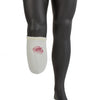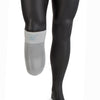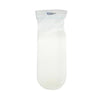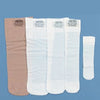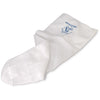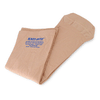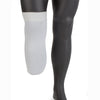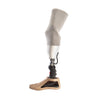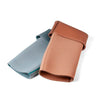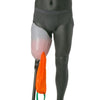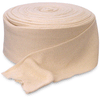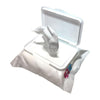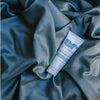Know Your Skin Type
When you wear a prosthesis on a daily basis, the right prosthetic skin care products can go a long way towards preventing and treating irritation or other issues. Everyone has unique skincare needs -- there are as many kinds of skin in the world as there are people on the planet. But in order to give your skin the best possible care, you have to know your skin type.
Your skin is either dry, oily, sensitive, a combination, or normal.
Normal: Normal skin will be soft, supple, and even, not shiny or flakey. If you dab your skin with a tissue and it doesn't produce an oily residue, your skin is considered normal.
Dry: Dry skin will be flakey, itchy, red, or tight feeling. It's common for very dry skin to crack.
Oily: Oily skin will look reflective or shiny. When dabbed with a tissue it leaves oily residue. People with oily skin are more prone to certain skin conditions like bacterial folliculitis and other fungal infections.
Sensitive: Sensitive skin is usually dry and is prone to irritation.
Combination: Combination skin types will generally be oily in some areas, while some areas of the skin will appear to be dry or normal. Some areas (grafted areas, pressure points) may also be particularly sensitive.
To determine whether your skin is generally sensitive, normal, dry, oily, or a combination, pay attention to how your skin looks and feels without the use of products. Then choose a skin care product accordingly.
Related Articles:
- Alcohol & Skin Care: The Facts
- Do I have a skin disorder?
- How-to create a prosthetic skin care routine?
- How do amputees deal with friction?
- How Does Your Skin Work?
- Ingredients To Avoid
- Parabens: Are they really a problem?
- The DOs and DON'Ts of Skin Care
- Why are fragrance free products best?
- Why do some skincare products cause a negative reaction?
- Your Residual Limb Deserves Some TLC
- 15 Skin Problems Amputees Experience & How to Solve Them
- Common Skin Issues for Above-Knee Amputees































